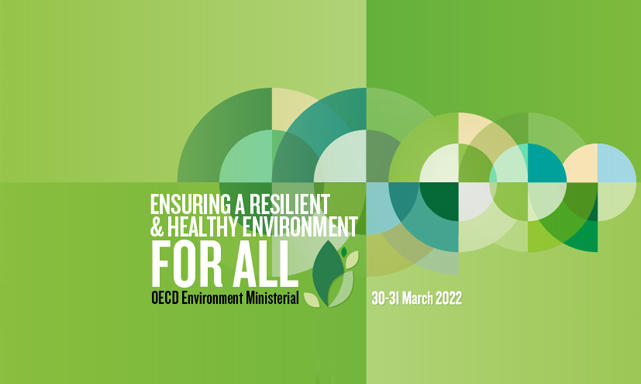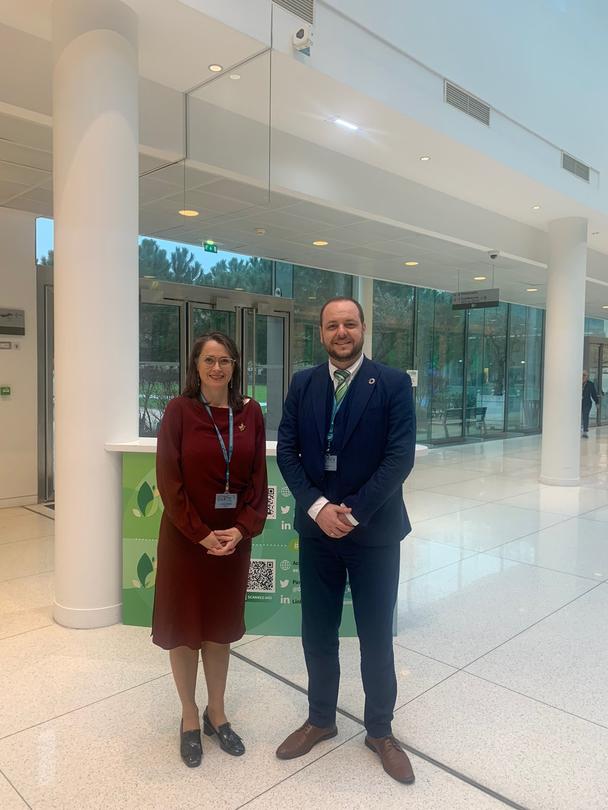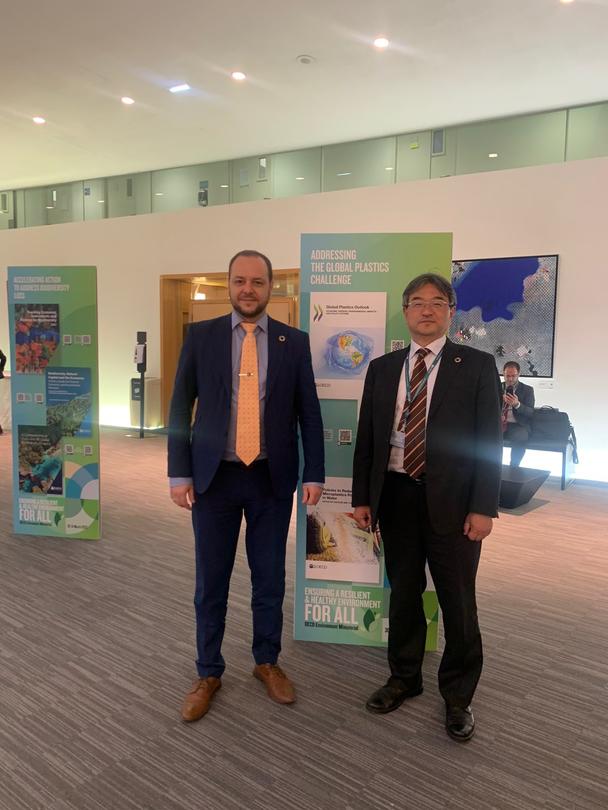Minister Borislav Sandov participated in the meeting of ministers of environment of OECD countries
31 Mar, 2022 | 16:48
Deputy Prime Minister for Climate Policy and Minister of Environment and Water Borislav Sandov participated in a discussion on the transition to zero emissions and the acceleration of activities addressing biodiversity loss, which was held during the Ministerial Meeting of the Environmental Committee of the Organization for Economic Cooperation and Development (OECD).
This is the first time Bulgaria participates at ministerial level since it was granted “participant” status in the Committee in August 2021, and since the OECD Council decision of 25 January 2022 to start accession talks with candidate countries, which include Bulgaria. The participation of Minister Sandov clearly signals Bulgaria’s alignment with and support for OECD policies in the field of environmental protection.
Minister Sandov named the main challenges in the transition to zero emissions and highlighted the changes in the world order in the recent decades. He emphasized that a climate-resilient society must involve all stakeholders in all countries. The Minister said that the new collective quantitative target should be a cornerstone in setting priorities for climate action and in helping to build a framework for financing the achievement of the 1.5 °C target.
In the session on biodiversity conservation, Minister Sandov stressed the important role of Bulgaria as a country with almost 35% coverage of its territory by the Natura 2000 network and ambition to increase protected areas. He highlighted the need to use nature-based solutions in environmental policy-making, adding that new action plans are currently being developed and existing ones are being strictly implemented to protect endangered species and combat invasive species.
On the topic of improving human health and safety, Minister Sandov said that a holistic approach is needed and it is important to take into account many components. Therefore, in addition to policies to improve air quality, the effects of climate change, water quality, and the challenges of biodiversity loss must be addressed. He presented two programs for financing activities to improve air quality worth 800 million BGN of European and national funding. These investments are in direct connection with the promise made by Minister Sandov when he took office, i.e. to ensure allocation of significant financial resources so that plans and measures for improving air quality do not remain only on paper.
In the discussion on environmental education, Minister Sandov shared good practices for integrating environmental issues in primary education programs, as well as from the information campaigns by the Ministry of Environment and Water conducted on the occasion of marking environmental days from the international calendar.
On the topic of plastic pollution, he said that overcoming this crisis requires reducing disposable plastic products and phasing out plastic packaging, which is mainly used as part of product marketing. In the area of prevention, current policies must be continued and new ones must be developed to reduce the consumption of plastics and eliminate their unnecessary use. This can be achieved through policies to encourage the reuse, to ban certain products, or to introduce specific requirements for the design, packaging, and marketing of various products. However, a balance should be sought between legal requirements and restrictions and the natural results of possible changes in consumer behavior and responsible business behavior.
Environment ministers adopted the Declaration on a Sustainable and Healthy Environment for All.


